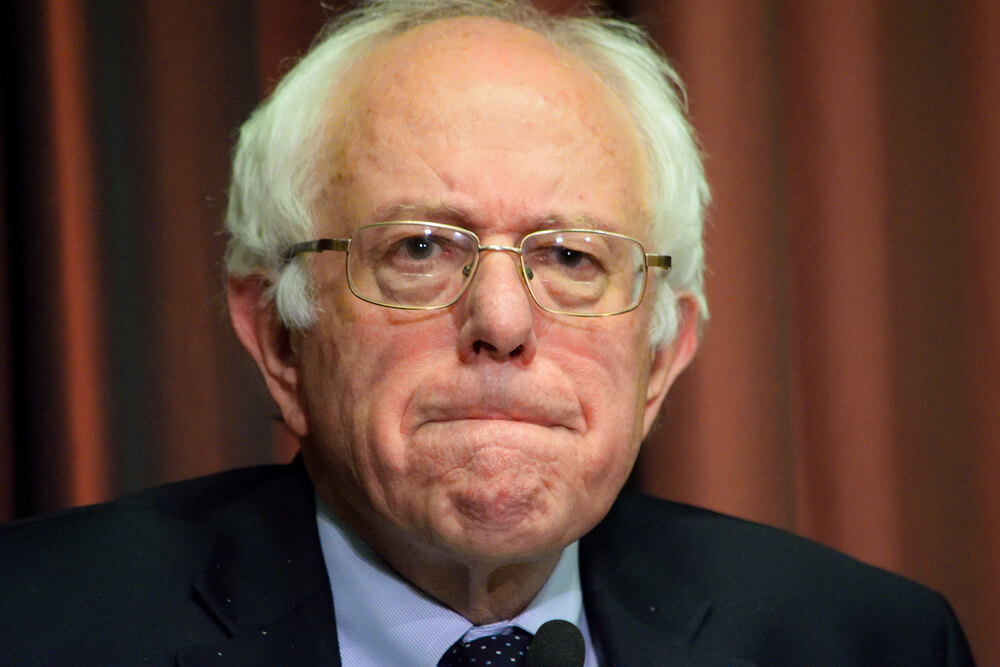Elizabeth Warren’s call for a new 2% tax on the wealthiest Americans is so popular among her supporters that impromptu chants of “two cents” routinely surface at her rallies. But Bernie Sanders, Warren’s chief competitor for liberal voters in the Democratic presidential race, made clear on Tuesday he also has “a plan for that.”
Sanders, a Vermont senator, announced a plan to tax the nation’s wealthiest households. He vows to go further than Warren and generate more than $4 trillion over the next decade, substantially reducing billionaires’ fortunes.
His attempt to take back an issue that has become a signature of Warren’s comes as she’s gaining ground in the Democratic primary while Sanders’ own support appears to be softening. The Massachusetts senator has topped Sanders in recent polls of Democrats in Iowa and New Hampshire that show her running about even with the longtime front-runner, former Vice President Joe Biden, in those states.
The plan unveiled by Sanders seeks a 1% levy on households worth more than $32 million and proposes tax rates that would increase for wealthier people, up to 8% for fortunes in excess of $10 billion.
The tax would affect about 180,000 households, or around 0.1% nationwide, according to Gabriel Zucman and Emmanuel Saez, economists at the University of California at Berkeley, who estimated it would raise about $4.35 trillion in government revenue by the 2028 budget year.
“We are going to take on the billionaire class, substantially reduce wealth inequality in America and stop our democracy from turning into a corrupt oligarchy,” Sanders said in a statement.
Warren proudly declares herself the candidate with a plan for everything and announced months ago her support for a 2% tax on households worth $50-plus million. Citing economists, Warren’s campaign estimates its proposed levy would raise $2.75 trillion over 10 years.
Sanders’ plan goes further because it starts on fortunes worth less, kicking in at $32 million. Warren also proposes increasing the wealth tax up to 3% on any net worth of more than $1 billion, while Sanders’ tax rates don’t top out until 8% for the richest households.
Zucman and Saez estimate that if Sanders’ system had been implemented in 1982, the wealth controlled by the richest Americans listed on the Forbes 400 “would be only 40% of what it is today.”
Kyle Pomerleau, chief economist at the conservative Tax Foundation, called Sanders’ proposal more “extreme” than Warren’s. He said an 8% tax on assets of $10-plus billion would likely be higher than the investment returns on those holdings, such that billionaires would have a “large incentive to avoid the tax.”
The proposed tax might also prove an unreliable funding stream for Sanders’ centerpiece issue, the “Medicare for All” universal health insurance program, which Warren also supports.
“A wealth tax of this magnitude would tend to shrink the amount of wealth held by billionaires over time,” Pomerleau said. “So he may be able to make his plans add up in the short run, but it becomes more questionable over time as the wealth tax raises less and less.”
Sanders says that’s the point, though, vowing that reducing “historic levels of inequality in America” can rebuild the middle class. Campaigning in Davenport, Iowa, on Tuesday, he was asked about people attempting to avoid a wealth tax and responded: “If rich people want to run away from the United States because we are asking them to pay their fair share of taxes, that shows the level of love they have for this country, which apparently would not be much.”
His proposal came the same day a Monmouth University poll showed 27% of likely primary voters in New Hampshire supporting Warren, about even with Biden and well ahead of Sanders. That follows a weekend poll released by The Des Moines Register, CNN and Mediacom that had Warren and Biden in a near tie atop the field in Iowa, which kicks off the Democratic nominating contest.
In a memo to supporters on Tuesday, Warren’s campaign detailed how it intends to keep momentum, including launching an advertising buy worth $10 million in Iowa and the next three states voting: New Hampshire, Nevada and South Carolina.
Roger Lau, Warren’s campaign manager, wrote that the effort will be focused more on digital mediums rather than “old-school broadcast television” and mostly feature “in-house staff” making videos and ads, not the “consultant-driven approach of other campaigns.”
Warren’s team also plans to expand its door-knocking operations and its calling and texting of would-be supporters, while hiring state directors and organizers in many states that have primaries and caucuses in March, like delegate-rich California and Illinois. And her campaign is vowing to staff up in places it describes as critical for maintaining Democratic control of the House and taking back the Senate, such as Maine and Georgia.
“We’ve released dozens of plans in the past seven months,” Lau wrote, “but they’re really one big, simple plan: to break the stranglehold of corruption on Washington and put political and economic power in the hands of the people, where it belongs.”
© The Associated Press. All rights reserved.
